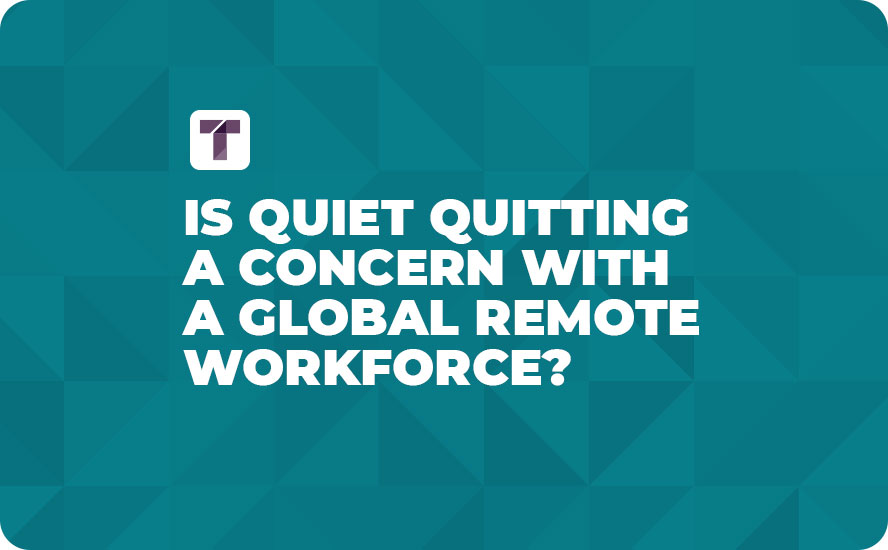Whether you saw the trend on TikTok or it first came to your attention when the movement—if you want to call it that—hit national news, you’ve likely heard of quiet quitting, and if you are an employer, we get the fear. The words, taken at face value, are a little scary especially if your team works remotely. Is quiet quitting a concern with a global remote workforce? Let TRUSS lay some of your fears to rest.
Quiet Quitting Versus Meeting Expectations

As employers ourselves, we can understand why this “quiet quitting” movement might seem scary. Are your employees suddenly going to turn against you because of what they saw on TikTok? This is far from the reality of the situation. The truth is, most employees practice quiet quitting to some degree, you may even do it yourself as part of maintaining a healthy work-life balance.
Quiet quitting does not mean doing inferior work, nor does it mean doing less work. It means meeting expectations. Every employer dreams of having employees go above and beyond, and quiet quitting still allows for that, what it discourages is doing work that you are not paid for. Some employees may take this to mean never doing anything unless they are asked, but most use this as a way to ensure that they have a proper work-life balance. As an employer, you should care about that too!
The truth is, the people that take quiet quitting to the extreme and fall below expectations because of it, are likely people that wouldn’t have lasted long anyway. Good hiring practices, established expectations, and policies that encourage a good work-life balance will ensure that this quit quitting movement will have little impact on your workforce no matter where that workforce is based. Yes, that goes for global remote employees too.
Read More: Why Hire Full-time Global Employees vs Contractors?
Actions You Should Take to Minimize the Impact of Quiet Quitting on Your Business
If quiet quitting is affecting your business, then perhaps you are already doing things wrong.
Part of being a good employer is not just having realistic expectations, but ensuring that your employees know what those expectations are. Also, ensure that ‘above and beyond” at your company doesn’t mean working for free.
Quiet Quitting as a Matter of Policy
Some companies and even whole countries have long ago adopted quiet quitting as a part of policy. Of course, the term quiet quitting didn’t exist then, but it’s always been a real part of the modern workplace.
For example, in many countries including Portugal and Belgium, it’s against the law to contact employees outside of working hours. Others have restrictions on even opening and responding to emails outside of those working hours. Some employees may see this as an undue restriction, but it’s done to limit abuse in a world where we are more connected than ever.
How Did Businessolver Hire Talent in a Talent Shortage?
Is Quiet Quitting a Concern With Global Remote Employees?
The quiet quitting trend did originate in the U.S. but in the modern age, trends rarely know borders for long. Are you worried about quiet quitting with remote work and adding a few thousand miles to your work relationship? Don’t be. Instead, set your employee expectations properly and obey local policy. It’s what you should have been doing already anyway.
If you think there are employees that you have now that aren’t doing the job that you would like, then ask yourself about what expectations you have communicated to them. This isn’t to cast blame in any one direction. Still, if your expectations are clear and you are not just expecting your employees to always do more than they are asked, then you are setting yourself up to have a successful team whether they work right outside your office or on the other side of the globe.

